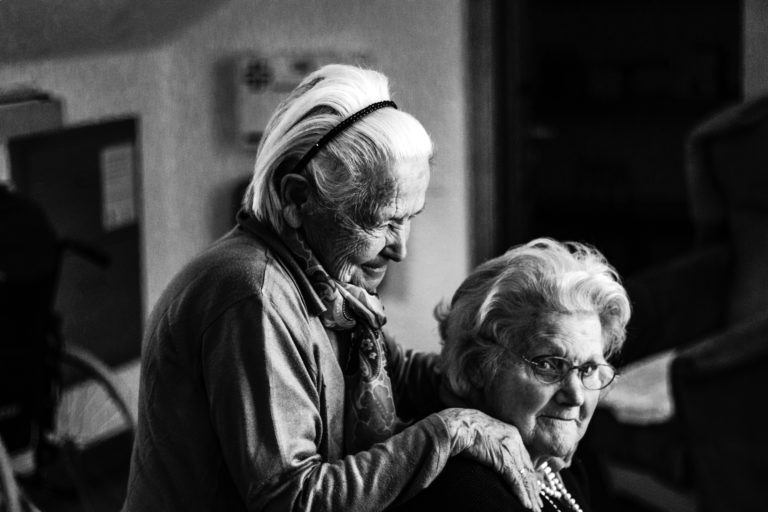End-of-life planning can be an uncomfortable conversation to raise with loved ones. It is also a crucial topic to start thinking about if you are taking care of an older family member. Before starting the conversation, you will want to make sure you understand what is involved in end-of- life care and why it makes sense to start early.
What is end-of-life planning?
End-of-life planning gives an individual the opportunity to participate in the decisions about the end of their lives (financial and health care) at a point in time when they are cognitively and physically capable. Traditionally, there are four components involved in end-of-life planning: 1) the advance directive, sometimes called a living will, 2) appointing an individual with durable power of attorney to handle decisions about their health (in the event their health should decline), 3) having a document that outlines the distribution of assets, and 4) specifying preferences for the type and place of end-of-life care. All four components can dramatically change the end-of-life experience for individuals and their families. With modern end-of-life planning, you can also find tools for financial planning, document storage, memorial planning, and password storage, as well as documenting stories, letters and photos for loved ones.
The conversation people aren’t having
Most people understand the value of end-of-life care planning on some level, but it always seems like a conversation for later. Only about 37% of Americans have an advanced care directive. It’s understandable to want to put it off–death typically isn’t something we look forward to thinking or talking about! As someone caring for a loved one, you can make a big difference by simply raising awareness about the potential benefits of handling end-of-life care planning before an emergency occurs, or before any unanticipated cognitive decline. Plus, it is far easier to discuss end-of-life planning when it feels far off, rather than during an imminent situation.
Why you should plan ahead
Empowerment
One of the most compelling reasons to start the conversation early with your loved one is because making these decisions early gives a person more authority over the course of the end of their lives. There are some factors that are out of one’s control–disease progression, for example–but end-of-life planning involves factors that allow an individual to have a voice.
If your loved one does not prepare these documents early, they are inadvertently giving authority to other people to make the decisions that impact their quality of life. Depending on whether they have appointed an individual of their choosing to make these decisions, life-altering choices may be made by someone who doesn’t know your loved one well enough to predict what they would want.
Less stress
Another reason to start end-of-life planning early is simply to avoid stress at the end-of-life. If there are clear instructions about health and finances, there is a lower likelihood for family disputes or confusion at a time that is likely already high-stress. Each component of end-of-life care is important, but naming individuals to make healthcare and financial decisions on your loved one’s behalf is absolutely critical, since these people will need to handle difficult decisions in the event of an emergency. If this person would be you, you don’t want to find yourself unable to voice the wishes of your loved one.
Ability to focus on what really matters at the end-of-life
Since the logistics will already be handled, you and your loved one’s friends and family will have more time to focus on what really matters at the end-of-life: cherishing and remembering. This can be an important time for your family and community to come together. Having end-of-life planning in place can help encourage collaboration and closeness.
Resources to help
There are a number of resources, such as Lantern, that can help caregivers prepare for end-of-life planning with loved ones.
National resources include: Administration on Aging, the National Council on Aging, Medicare, Social Security, and the Veterans’ Administration. Local chapters or clinics affiliated with these organizations may be able to offer guidance about end-of-life planning.
The National Hospice and Palliative Care Organization offers free advice about advance directives and advice for communicating wishes to family and friends. The organization also understands differences between states, so they can provide state-specific guidance.
The Heart of Hospice is a website that provides information about end-of-life care, hospice, advance care planning, and self-care tips for caregivers.
Death Café, a series of online forums started in 2011, has fostered an international community to discuss the topic of death and dying. Projects like this one have tried to normalize the concept of death and encourage individuals to embrace death-related discussions.
Death by Design is a website encouraging individuals to approach end-of-life care the same way we might thoughtfully approach a design: by reflecting on values and preferences.
Author: Max Mayblum
Max Mayblum is a Certified Senior Advisor (CSA) and the founder and CEO of Givers, a caregiver wellness and support platform that provides caregivers access to a wealth of resources, knowledge, and savings through a dedicated caregiver debit card.





